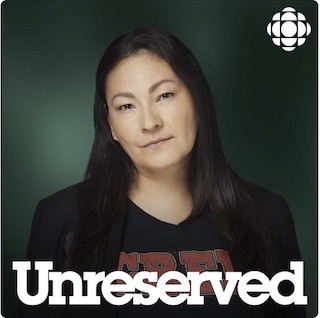Indigenous people across North America are working to return thousands of sacred objects and ancestral remains, belongings that were taken and put in museums, galleries, private collections, and universities. […]
“Some of the struggles I think our people have is just the knowing that these things are elsewhere,” she said. “These things need to be made right.”
The Royal BC Museum and the Haida Gwaii Museum recently published the Indigenous Repatriation Handbook. It is available for free online to support communities and museums in the repatriation of belongings. | Read the full story on the website of Canada’s CBC “Unreserved” series hosted by Rosanna Deerchild >>FULL EPISODE: Repatriation: Bringing ancestral artifacts and remains home >>
Source: CBC
URL: https://www.cbc.ca/radio/unreserved/how-one-museum-is-repatriating-indigenous-belongings-1.5174410
Date visited: 24 June 2019t

“Unreserved is the radio space for Indigenous voices – our cousins, our aunties, our elders, our heroes. Rosanna Deerchild guides us on the path to better understand our shared story. Together, we learn and unlearn, laugh and become gentler in all our relations.” | Listen to more episodes | Related posts >>
Continents & countries
Tips for using interactive maps
Toggle to normal view (from reader view) should the interactive map not be displayed by your tablet, smartphone or pc browser
For details and hyperlinks click on the rectangular button (left on the map’s header)
Scroll and click on one of the markers for information of special interest
Explore India’s tribal cultural heritage with the help of another interactive map >>
